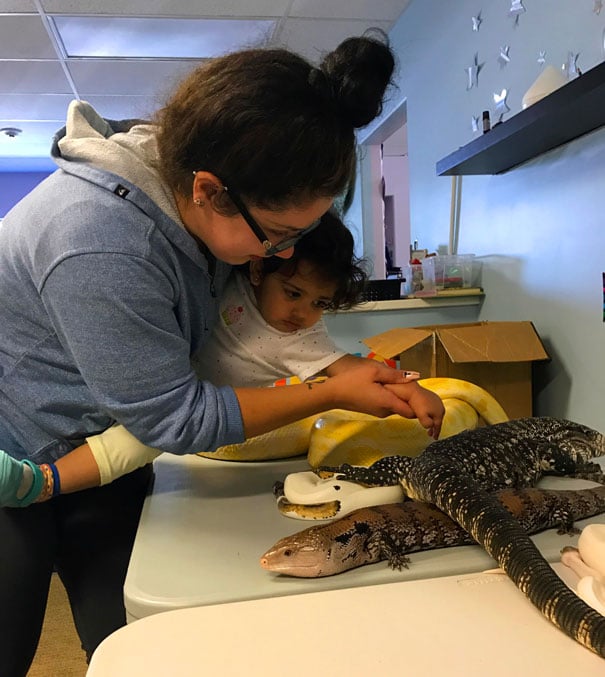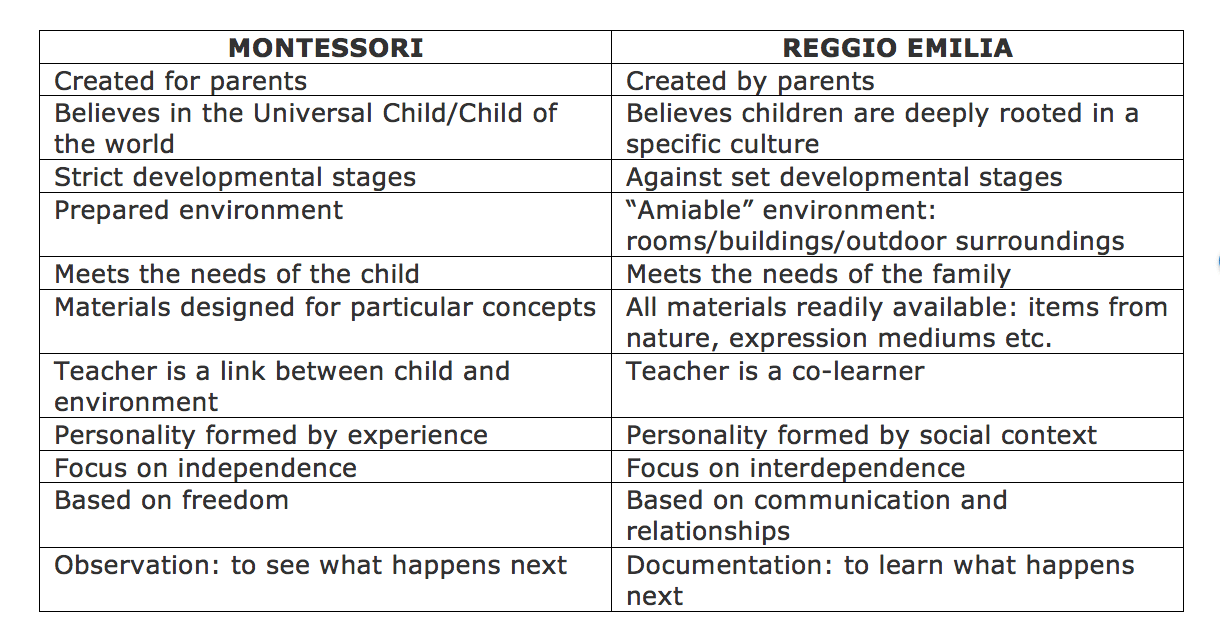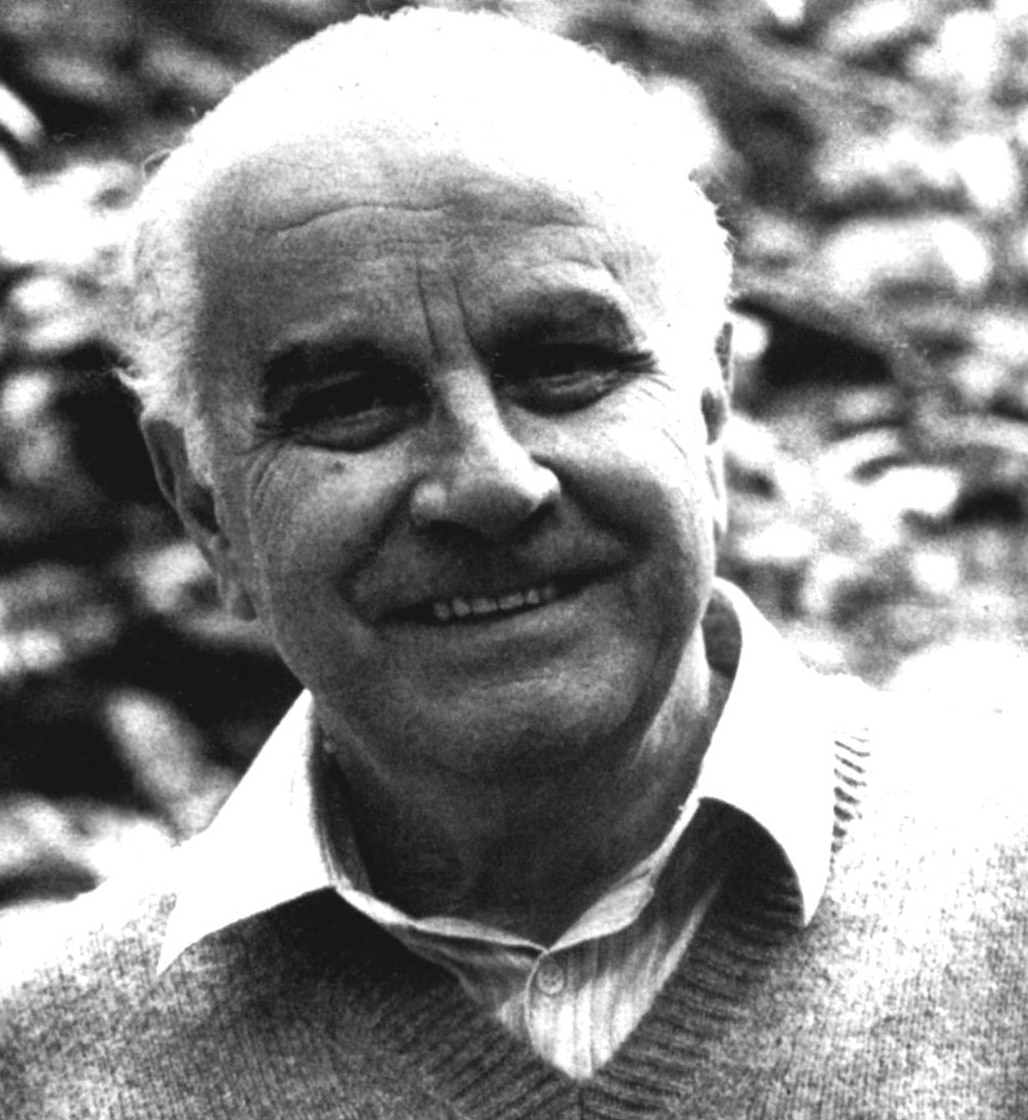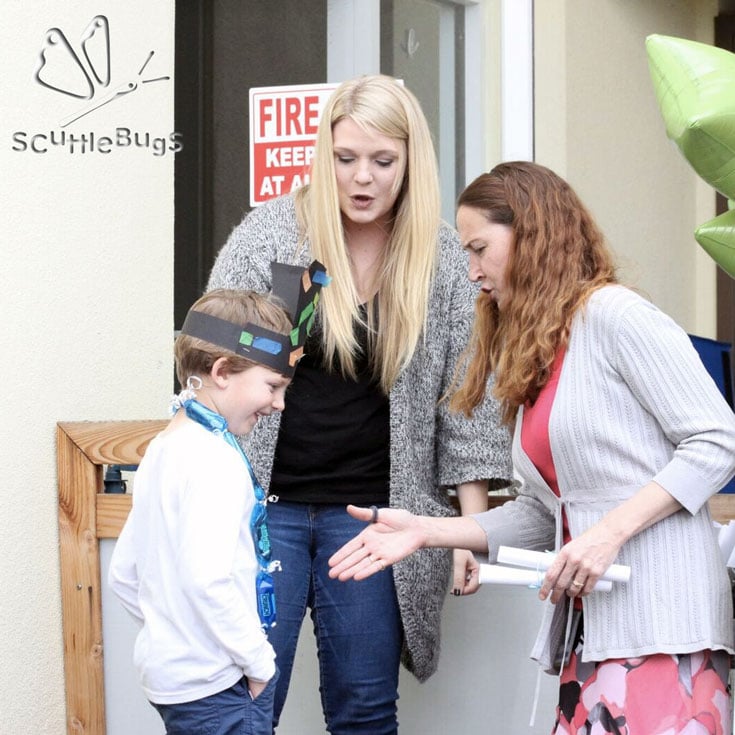Reggio Emilia or Montessori? At ScuttleBugs Child Development Center we have a Reggio Emilia inspired program. But, we make a point of thoroughly understanding the other ECE approaches and best practices. In this instance we’re looking at Montessori and seeing what elements we might want to meld into our culture and philosophy.
When researching and learning about educational philosophies and approaches, you’ll come across the word pedagogy, defined as the method and practice of teaching. With a wealth of information at our fingertips, many people tend to have an opinion on education – a key life element. As teaching is considered an ancient profession, today we are fortunate to have a great number of philosophies and curricula to draw from. You may find yourself with an affinity to one in particular, or perhaps a hybrid of instructional approaches is more your style. Here is a summation of the comparisons and contrasts of Montessori and Reggio Emilia philosophies. Naturally, as ScuttleBugs is a Reggio inspired program I have that bias, but that is not to say I can’t appreciate and incorporate elements from other philosophies into my own beliefs or our center’s practice. In fact, we encourage all our caregivers and early educators to utilize their own education and experience to create successful, well-rounded programs.

Montessori and Reggio Emilia are among a globally recognized and highly esteemed group of educational philosophies. The founders for both pedagogies (Maria Montessori 1870-1952 and Loris Malaguzzi 1920-1994) were esteemed Italian pioneers who dedicated their lives to the endeavor of teaching future generations. The core similarity between Reggio Emilia and Montessori is the underlying confidence in children being competent, independent, and resourceful. In my own words, little ones are capable of far more than we give them credit for, and it’s this concept that resonates with me!
In a nutshell, here we present some of the basic differences as highlighted by the North American Montessori Center in an easy to read table format.


The main aim of Montessori is for the child to be independent, and become more self reliant and motivated. Emphasis is placed on sensory exploration with manipulatives and materials that support the experience. Many of which have “built-in controls of error”, thereby less need for teachers to interfere in the activity or students to “check-in” with them constantly. Play is work, with an academic bent. Montessori fosters leadership with children applying themselves at their own pace in a multi age setting. There is an emphasis on mentoring, “learning up” as opposed to being “dumbed down”, which you won’t find in many schools, like those who restrict a child’s enrollment and participation due to potty training, for example.
Reggio Emilia bears the name of the Italian town in which it originated, and was a collaboration amongst the town’s folk and Malaguzzi himself, still present and being honored there today. The philosophy reflects the post World War II town sentiment and core goal of instilling a strong sense of community. It is commonly referred to as a student centered, social constructivist framework, whereby the children and the instructors learn experientially through interactions with people and the environment. The program is based on the principles of respect, responsibility, and community through exploration and discovery through a self-guided curriculum. Essentially, RE encourages the child to choose the “what” or subject matter/topic/theme based on their life experience and abilities, while the teachers scaffold the “how”, learning alongside their mini counterparts.


The reason I prefer this approach is proven by personal experience and results. Simply put, if the children can relate to the subject matter (student driven rather than teacher led), they are more likely to be engaged and benefit from the experience and lessons it entails. The nature of Reggio incites an evolution of long term projects through a multi-faceted method, emphasizing cooperation, good citizenship, and promoting problem solving/conflict resolution skills with a “let’s explore and discover more together” approach. Reggio is one of the New Kids on the Block and lesser known in North America. On the flip side, Montessori can and does get loosely applied to many programs in this country and abroad. Unfortunately, to the extent the facility may only have one Montessori credentialed teacher on site and/or limit true Montessori materials and practices in order to charge families’ higher tuition. Although I have yet to go to Italy and experience it’s true essence and results first hand, there are a number of resources and organizations who can provide additional information such as North American Reggio Emilia Alliance, in our own backyard.
So, how else do they differ? One stark contrasting feature between the two is observation (Montessori) versus documentation (Reggio Emilia). Montessori educators conduct themselves as an observer and director, privately and meticulously recording the child’s work and progress to better understand what materials or lessons to present next. Reggio teachers interpret and document the cognitive and social progress of the children. Findings are showcased with a comprehensive open display of the children’s work using their words or snippets of conversation via written notes/audio & video recordings/printed photos etc.
Another is in their approach to the syllabus structure and/or regularity/repetition of teaching to certain key domains. Montessori leans toward a “rote” methodology until a skill is mastered, Reggio is more organic; believing set developmental stages can be limiting, and possibly damaging to a child’s growth and potential.

Sometimes, despite all your personal experience, research, and due diligence in the selection process for a program that is “the perfect match”, it just doesn’t work out and isn’t a good fit for that particular child’s temperament and circumstances. Some little ones thrive in a more homely/intimate/small group setting, others prefer a larger, more structured setting. Future updates will compare/contrast Waldorf and Play Based, and Home/Public/Private Schools too. Regardless of whether you have a preference, at least no one can dispute the fact that “variety is the spice of life”…….or is it? Ok, that’s a separate blog topic to stay tuned for, as well as many more relevant and informative pieces.
